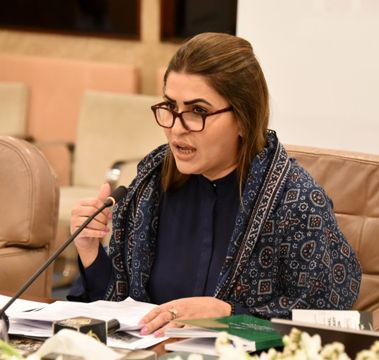By Adnan Rafique
ISLAMABAD: Speakers at the Breakout out session-II of the two-day International Constitutional convention on Thursday stressed the need for proper scrutiny process for appointment and promotion of judges in the courts to ensure transparency in judicial system like rest of the world.
Chairing the Breakout Session-II on “Constitution of and the Courts-Interpreting Constitution, Protecting Rights and Freedoms” Minister for Poverty Alleviation and Social Safety Shazia Marri said chaos was detrimental for development of country. The 1973 constitution clearly defined role of every institutions including the judiciary, she added.
She said in Pakistan Supreme Judicial Council (SJC) was authorized to carry out investigation against any judge of the superior judiciary.
“We have SJC but there is need for transparency of public scrutiny of the judges,” she said.
Recalling his party struggle for democratic process, the minister said that the credit went to Pakistan Peoples Party (PPP) and its founder Shaheed Zulfikar Ali Bhutto passed the constitution unanimously despite ideological and political difference with other parties.
She said that she took oath on the constitution to follow, protect and preserve it in its letter and spirit. We had witnessed intervention in democratic system several times but continued our struggle for the democratic process, she added. The minister observed that unfortunately founder of the constitution Zulfikar Ali Bhutto was murdered through judicial order.
She said leader like Shaheed Benazir Bhutto could not be replaced and vacuum created after her death would not bridge. Benazir Bhutto was an iconic leader and lived in hearts of millions of people, Shazia remarked. Speaking on the occasion Dr Joseph Kizito Mhagama, Member Parliament United Republic of Tanzania said courts were responsible for interpreting law in his country.
There was clear procedure for appointment and promotion of judges, he added.
He said in Tanzania, people enjoyed freedom of speech and assembly but special permission was required for holding procession adding that the courts had not rights to intervene in such matters.
Former Senator Safdar Abbasi said that three attempts were made to abrogate the constitution in Pakistan including in 1977 and 1999 where elected governments were removed. Unfortunately, the judiciary validated the acts of dictators under doctrine of necessity, he added.
He said after the landmark 18th amendment, we were forced to pass the 19th amendment. Only constitution was sovereign and supreme and some kind of settlement was required between judiciary and parliament for resolving various issues including holding free, fair and transparent elections in the country.
Zafarullah Khan said that the 18th constitutional amendment passed by the parliament was scrutinized twice. Appointment of judges was an important matter and in USA, Senate members used to scrutinize judges, he added.




